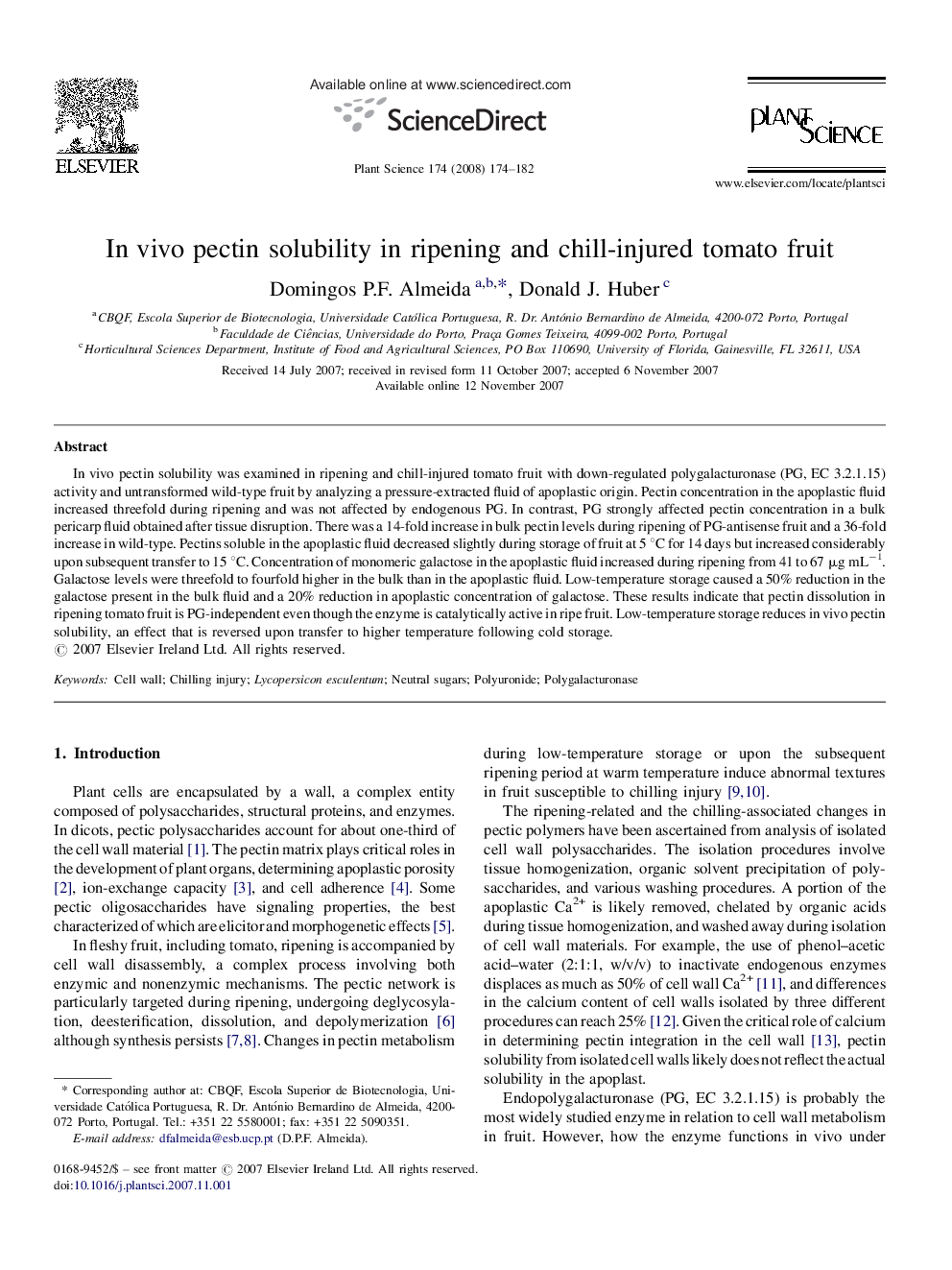| Article ID | Journal | Published Year | Pages | File Type |
|---|---|---|---|---|
| 2018584 | Plant Science | 2008 | 9 Pages |
In vivo pectin solubility was examined in ripening and chill-injured tomato fruit with down-regulated polygalacturonase (PG, EC 3.2.1.15) activity and untransformed wild-type fruit by analyzing a pressure-extracted fluid of apoplastic origin. Pectin concentration in the apoplastic fluid increased threefold during ripening and was not affected by endogenous PG. In contrast, PG strongly affected pectin concentration in a bulk pericarp fluid obtained after tissue disruption. There was a 14-fold increase in bulk pectin levels during ripening of PG-antisense fruit and a 36-fold increase in wild-type. Pectins soluble in the apoplastic fluid decreased slightly during storage of fruit at 5 °C for 14 days but increased considerably upon subsequent transfer to 15 °C. Concentration of monomeric galactose in the apoplastic fluid increased during ripening from 41 to 67 μg mL−1. Galactose levels were threefold to fourfold higher in the bulk than in the apoplastic fluid. Low-temperature storage caused a 50% reduction in the galactose present in the bulk fluid and a 20% reduction in apoplastic concentration of galactose. These results indicate that pectin dissolution in ripening tomato fruit is PG-independent even though the enzyme is catalytically active in ripe fruit. Low-temperature storage reduces in vivo pectin solubility, an effect that is reversed upon transfer to higher temperature following cold storage.
